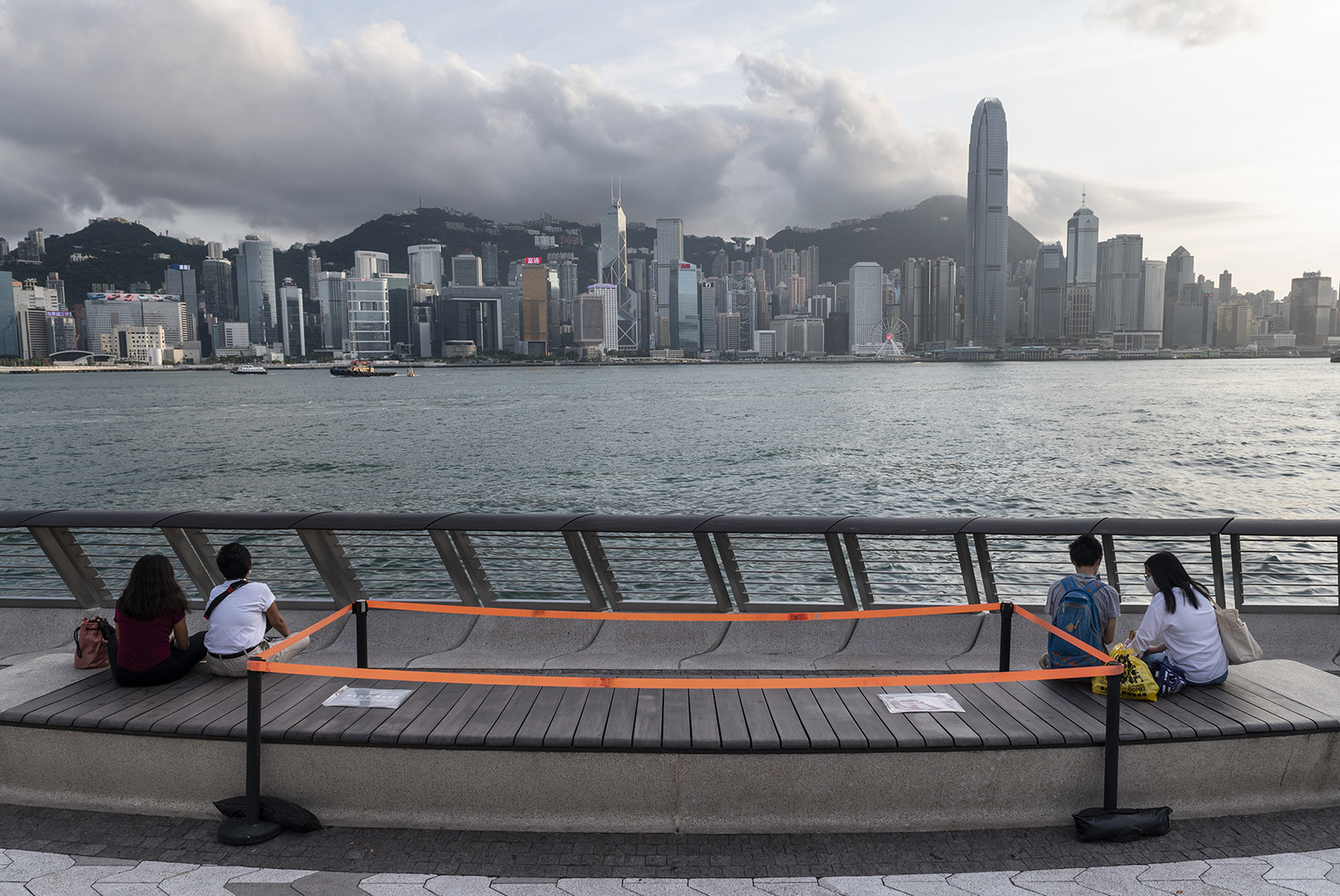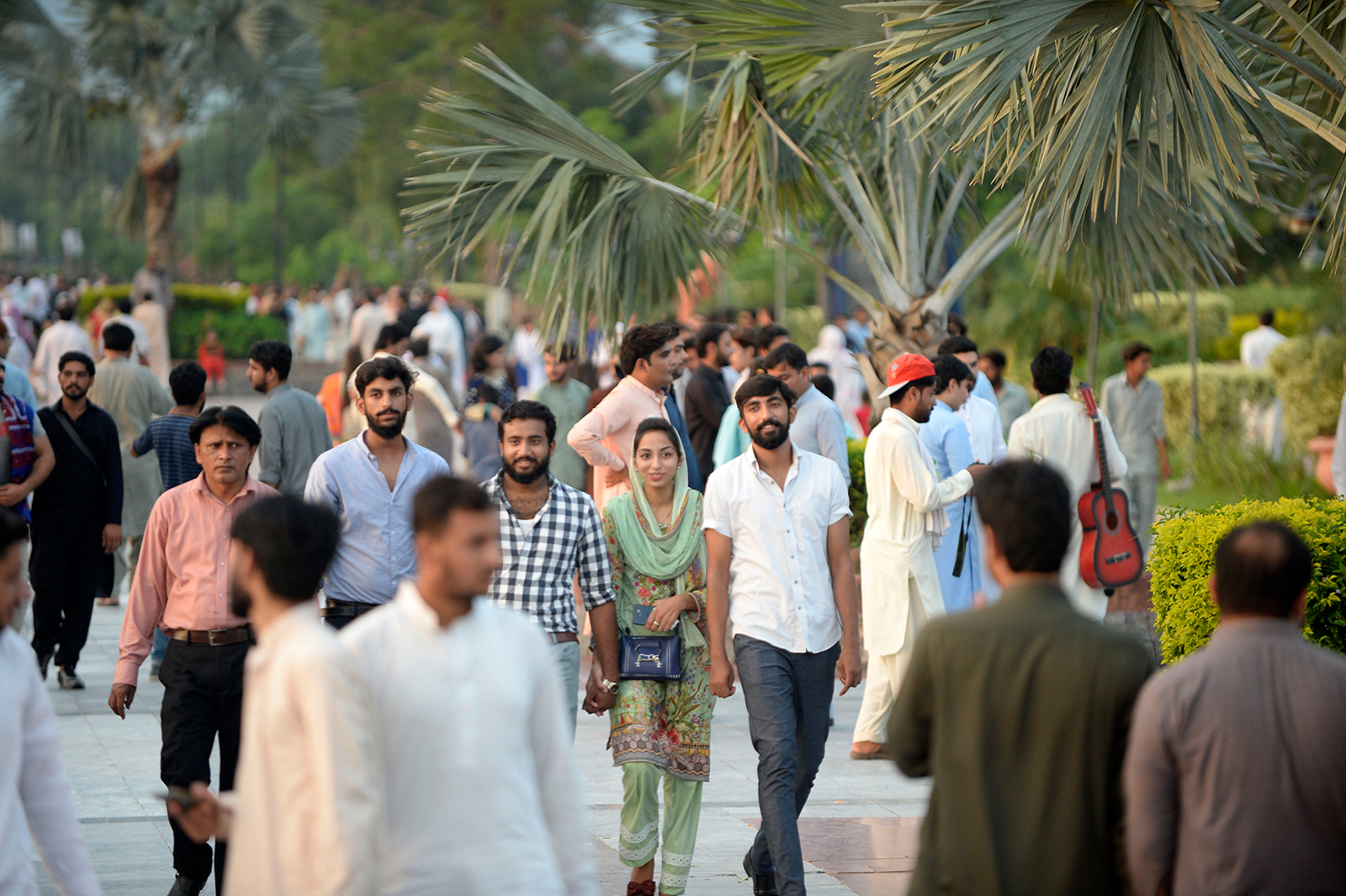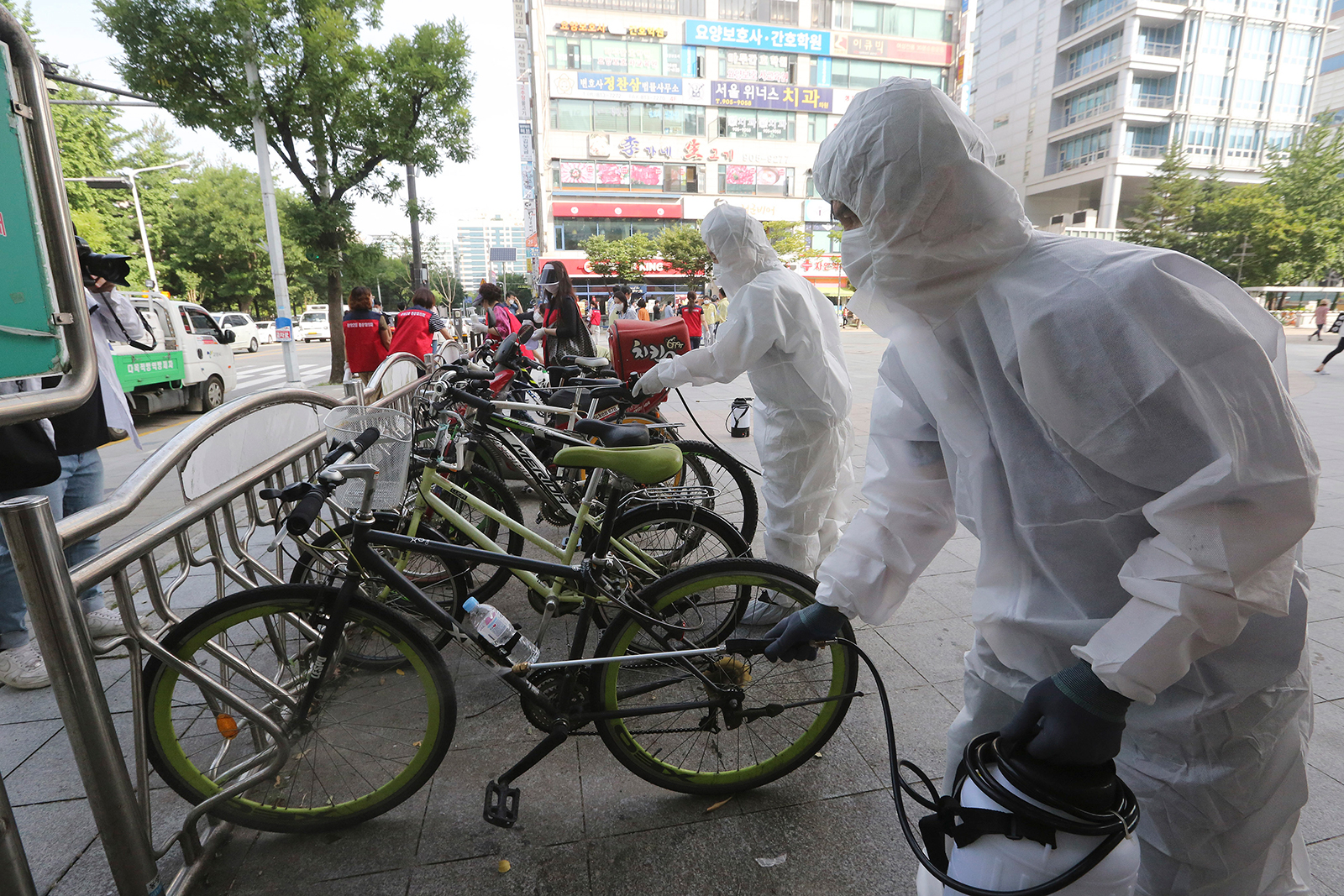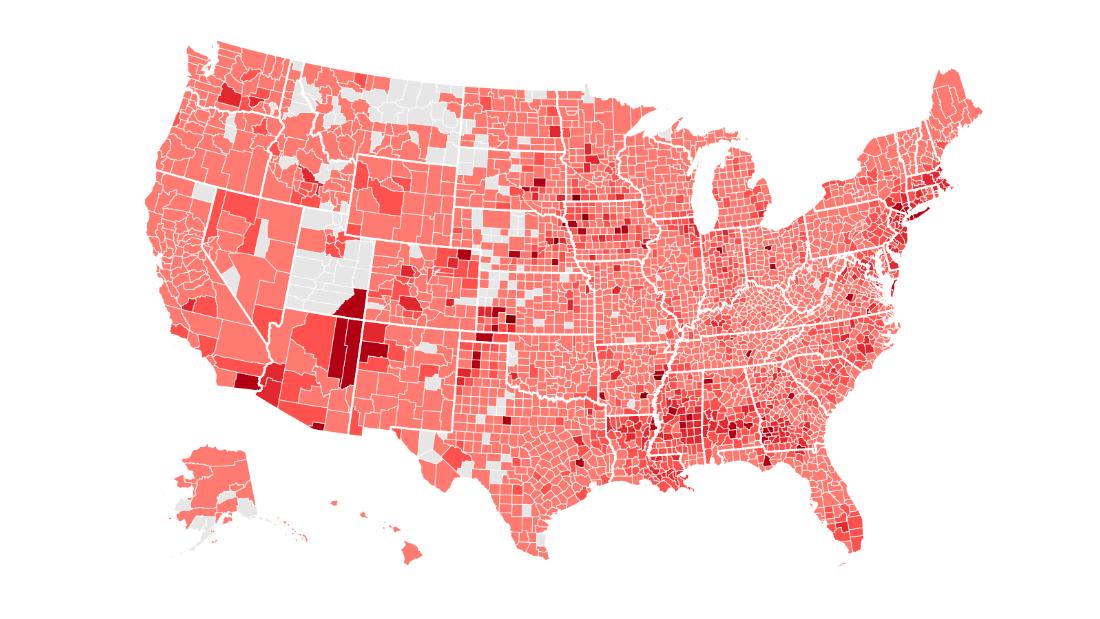Oxford coronavirus vaccine could be put before regulators by end of 2020
From CNN's Nada Bashir
A potential coronavirus vaccine being jointly developed by the University of Oxford and drugmaker AstraZeneca could be put before regulators by the end of this year, the director of the Oxford Vaccine Group said Tuesday.
However, speaking to BBC Radio 4, Pollard cautioned that the process could take longer depending on how much data scientists are able to gather.
“I think in time, because the virus is going to continue to transmit in our communities, we will, even with a thousand people, eventually have enough information to know whether or not the vaccine works -- but that could take years,” Pollard said.
“Having 20,000 people in our trials already means that that period of time will be shorter, but unfortunately I can’t quite predict the future about how many cases are going to occur in the next few months,” he added.
Hong Kong to relax some social distancing rules as virus cases drop
From CNN's Vanesse Chan in Hong Kong
 Couples sit and enjoy the view of he Victoria harbor as public benches are seen with orange tape to block access to them in Tsim Sha Tsui, Hong Kong, China, on August 24. Miguel Candela/Anadolu Agency/Getty Images
Couples sit and enjoy the view of he Victoria harbor as public benches are seen with orange tape to block access to them in Tsim Sha Tsui, Hong Kong, China, on August 24. Miguel Candela/Anadolu Agency/Getty ImagesHong Kong will relax some coronavirus restrictions starting Friday, as daily new cases begin to drop after several weeks of combating a third wave of infection.
Current social distancing measures will be extended for two more days before loosening, Hong Kong Secretary of Food and Health Sophia Chan announced today.
Dine-in services at restaurants will be extended until 9 p.m. instead of the current 6 p.m., while cinemas, beauty parlors and some outdoor sports premises will reopen, Chan said.
Face masks will also no longer be mandatory when exercising or in country parks.
Third wave: Hong Kong recorded nine new cases of Covid-19 on Monday, marking the lowest daily number of cases since July 3.
The past month has seen a third wave of infections sweep the city; daily case counts skyrocketed from single to triple digits.
The third wave saw restrictions, which had been gradually lifting, slam back down. No more than two people are allowed to gather in public, and restaurants can only seat a maximum of two people at one table.
But it's still too early to relax: Hong Kong Director of Health Constance Chan added that the community infection chain has not been completely cut off, as around 30-40% of cases are from unknown sources.
US racial inequality may be just as deadly as Covid-19, if not more, new research says
From CNN's Jacqueline Howard
Even amid a pandemic, life expectancy among Whites in the United States far exceeds what Blacks experience every year, according to a new study.
The research, published in the Proceedings of the National Academy of Sciences on Monday, uses national life expectancy data and demographic models to estimate how many White deaths from Covid-19 would be needed for the White death rate in 2020 to reach the levels of the year with the lowest Black death rate ever recorded, which was in 2014.
That year, the rate of Black mortality was about 1,061 per 100,000, said Elizabeth Wrigley-Field of the University of Minnesota, who led this research.
For perspective, the most recent White mortality rate, in 2017, was about 899 deaths per 100,000.
Currently, the White Covid-19 age-adjusted mortality is about 28 deaths per 100,000 -- meaning "US white deaths including Covid are still well below the best that Black mortality has ever been," Wrigley-Field wrote in an email.
"If Black disadvantage operates every year on the scale of Whites' experience of COVID-19, then so too should the tools we deploy to fight it," she added.
Recovering from Covid-19 "doesn't mean you are immunized for life," researcher warns
Yesterday, preliminary research found that a 33-year-old man in Hong Kong had contracted Covid-19 twice this year, having fallen ill 142 days after being infected the first time.
Ivan Hung, part of the research team at the University of Hong Kong, said the study "underscores the importance of having an annual coronavirus vaccine to boost immunity even if you recovered from a natural infection."
The second or third infection will likely be less severe than the first, unless the patient is elderly or immunocompromised, he added.
Vaccine development: More than 30 vaccine candidates are now in varying stages of clinical development and Phase 1, 2 or 3 clinical trials, according to the World Health Organization.
The race to find an effective vaccine has global implications, not just for the health of billions of people, but potential billions in revenue for the successful developer and manufacturer.
US reports more than 38,000 new Covid-19 cases
The United States reported 38,949 new cases of Covid-19 and 474 virus-related deaths on Monday, according to data from Johns Hopkins University.
That brings the country's total to at least 5,740,628 cases and 177,276 related deaths.
The totals include cases from all 50 states, the District of Columbia and other US territories, as well as repatriated cases.
Update: This post was updated to accurately reflect Monday's figures.
Follow CNN's live tracker of US cases here:
Schools in Seoul will shift to online classes until September 11 due to coronavirus outbreaks
From CNN's Yoonjung Seo and Gawon Bae in Seoul
Schools in the greater Seoul area will suspend in-person classes starting Wednesday due to a surge in coronavirus infections, according to the country's education ministry.
All kindergartens, elementary, middle, and high schools in the greater Seoul area will hold online classes until September 11, Education Minister Yoo Eun-hae announced in a news release on Tuesday.
The measure will apply to schools in Seoul City, Incheon City and Gyeonggi Province, except students in their third year of high school.
There are more than 7,500 schools in Seoul and its surrounding areas, according to the latest statistics by the Education Ministry from 2019.
The decision came after the Education Ministry and superintendents of the metropolitan area agreed that more preemptive and intensive measures were necessary to prevent further spread of infection.
Some 150 students and 43 faculty members in the metropolitan area have tested positive since cluster infections in the area began on August 11, the release said.
Students normally go back to school at the beginning of March in South Korea, but the start of the spring semester was delayed this year due to the pandemic. South Korea began its phased return of students to the classroom in May.
Pakistan records lowest daily cases since April, as country slowly reopens
From CNN's Sophia Saifi in Islamabad
 Tourists visit the Lake View Park after the government recently eased Covid-19 restrictions in Islamabad, Pakistan, on August 23. Ahmad Kamal/Xinhua/Getty Images
Tourists visit the Lake View Park after the government recently eased Covid-19 restrictions in Islamabad, Pakistan, on August 23. Ahmad Kamal/Xinhua/Getty ImagesPakistan recorded 346 new cases of coronavirus on Monday, according to the country's Health Ministry -- the lowest daily figure since April.
Infections were still surging earlier this summer, reaching more than 6,000 cases a day in June.
The government announced reopening plans two weeks ago as cases began to drop; cinemas, hotels, restaurants and the tourism sector have all since reopened. The Ministry of Education will conduct a final review of the situation in early September, and has scheduled for schools to reopen later that month.
Restrictions on transport and airlines are expected to lift in October, officials said.
South Korea reports 280 new Covid-19 cases
From CNN's Gawon Bae in Seoul
 Workers and volunteers disinfect as a precaution against the coronavirus on a street in Goyang, South Korea, on August 25. Ahn Young-joon/AP
Workers and volunteers disinfect as a precaution against the coronavirus on a street in Goyang, South Korea, on August 25. Ahn Young-joon/APSouth Korea confirmed 280 new coronavirus cases on Monday, according to the country's Centers for Disease Control and Prevention.
Of these cases, 264 were local transmissions. The country also reported one new virus-related death.
Monday's figures raise the national total to 17,945 cases and 310 deaths. Some 14,286 patients have recovered so far. Among the remaining active cases, 3,349 remain in quarantine and 38 patients are in critical condition.
Crucial time: Senior Health Ministry official Yoon Tae-ho said this week is a critical period to combat the spread of Covid-19.
Social distancing Level 3 requirements will be reviewed depending on this week’s numbers, he said.
This autumn presents a threat; the national holiday Chuseok takes place during the first week of October, and is often referred to as "Korean Thanksgiving" -- a time when people travel across the country to spend time celebrating with their families.
The government is now reviewing strategies to minimize the spread of the virus during this period.
Brazilian government approves Doctors Without Borders medical assistance to Indigenous people
From CNN's Rodrigo Pedroso in São Paulo
Brazil's federal government agency has approved the humanitarian non-profit Doctors Without Borders (MSF) to enter indigenous communities and assist with the coronavirus surge there.
The approval came Monday for select MSF teams to enter seven Terena people villages of the Aquidauana region, in the midwestern Brazilian state of Mato Grosso do Sul, according to the official Brazilian gazette.
Some context: Last week, the indigenous association reported that the government didn’t give permission for the MSF teams to enter Terena's villages, where more than 6,000 people live, according to the organization.
The agency said that the plan presented by the organization needed to be evaluated in order to not interfere with their own work.
Covid has devastated Indigenous communities: By early August, more than 22,000 Brazilian indigenous people had been diagnosed with the coronavirus, and at least 631 had died from it, according to indigenous group APIB. But due to limited testing, the real toll could be higher.
The deaths included prominent indigenous leader Chief Aritana Yawalapiti of the Upper Xingu territory.
These indigenous communities are often far from hospitals, in areas which often lack basic infrastructure. Those who move to towns or cities can end up in precarious living conditions with few public services, increasing their vulnerability to health issues.

 5 years ago
631
5 years ago
631 


